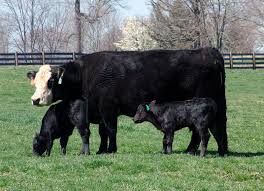The following article is part of the weekly Cow Calf Corner newsletter published electronically by Dr. Glenn Selk, Oklahoma State University Emeritus Extension Animal Scientist. This week, Dr. Selk talks about the importance of properly giving injections when working calves.
The months of late April and May are traditionally the time when “spring round-ups” take place. This is the time that large and small cow/calf operations schedule the “working” of the calves. As the majority of the calves reach their second month of life, it is time to castrate the male calves and immunize all of the calves to protect them against blackleg. Visit with your veterinarian about other immunizations that should be given at this time.
Correct administration of any injection is a critical control point in beef production and animal health. There is a negative relationship between meat tenderness and injection sites, including injection sites that have no visible lesion. In fact, all intramuscular (IM) injections, regardless of the product injected, create permanent damage regardless of the age of the animal at the time of injection.
 Tenderness is reduced in a three-inch area surrounding the injection site. Moving the injection-site area to the neck stops damage to expensive steak cuts. Therefore, cow/calf producers should make certain that their family members, and other hired labor are sufficiently trained as to the proper location of the injections before the spring calf-working begins.
Tenderness is reduced in a three-inch area surrounding the injection site. Moving the injection-site area to the neck stops damage to expensive steak cuts. Therefore, cow/calf producers should make certain that their family members, and other hired labor are sufficiently trained as to the proper location of the injections before the spring calf-working begins.
Give injections according to label instructions. Subcutaneous (SQ) means under the skin, intramuscular (IM) means in the muscle. Some vaccines (according to the label instructions) allow the choice between intramuscular (IM) and subcutaneous (SQ). Always use subcutaneous (SQ) as the method of administration when permitted by the product’s label. Remember to “tent” the skin for SQ injections unless instructed otherwise by the manufacturer.
Click here to see more...